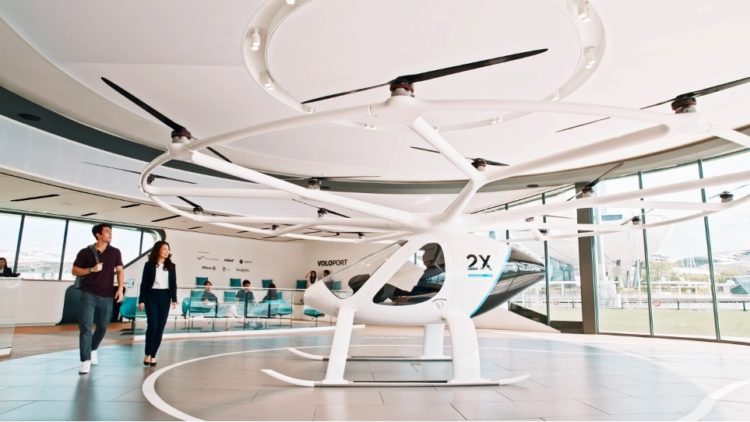It raised $170 million, funding that it said it will be using to kick off its first air taxi services, which it noted in an announcement would be “in cities like Singapore, Rome, and Paris.”
A spokesperson said the commercial launch will depend on the type of certification it gets and when. If fully achieved in the latter half of 2023, the commercial launch in the first cities is expected to be in 2024.
Florian Reuter, CEO of Volocopter, told Techcrunch in March 2021 that the services were two years out (so, 2023).
The money is part of a Series E, and Volocopter describes it at a first closing made at a pre-money valuation of $1.7 billion, which works out to a post-money valuation of $1.87 billion.
Volocoper has confirmed to me that the full target for the Series E is €300 million to €500 million ($330 million to $550 million). “We have other investors in the due diligence phase, but we do not know the timing of the next signing round nor the full amount yet,” a spokesperson said.
This first tranche is being led by WP Investment, a new backer of the company from South Korea, with strategic investor Honeywell (also a new investor) and previous backers Atlantia, Whysol, btov Partners, and other unnamed existing investors also participating.
It has raised $579 million to date, and other investors include Geely, Mercedes-Benz Group, Intel Capital, and BlackRock.
In 2017, Volocopter made a big mark in the autonomous vehicle space when backed by giants like Intel, it ran its first autonomous flying car test in Dubai. (Intel also imported and showed off the Volopter’s self-flying capabilities at an over-the-top event of its own.)
Read more on Tech Gist Africa:
Chinese automaker BYD’s February EV deliveries grow 750% from last year
Pony.ai Announces First Close of Series D Financing Round, With a Valuation of $8.5 Billion
Starship Brings in $100M to Expand Autonomous Delivery in Europe and US














